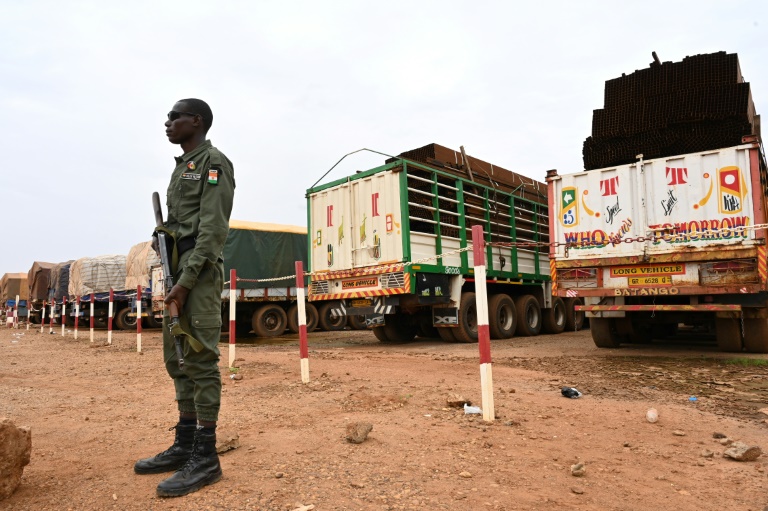Not only are contraband cigarettes considered to be more profitable than cocaine but those revenues generate profits for organized crime
Article content
OTTAWA — Canadian smokers who are trying to save a few bucks by purchasing contraband cigarettes may not realize that they are participating in a growing illicit industry that is now surpassing legal sales of tobacco in some parts of the country.
According to a new study commissioned by the Convenience Industry Council of Canada (CICC), which represents retailers and convenience stores across the country, contraband tobacco now accounts for 29 per cent of the market in Alberta, 38 per cent in Nova Scotia, 45 per cent in Manitoba, and a whopping 52 per cent in New Brunswick.
Advertisement 2
Article content
Only in Quebec — where a provincial task force has been cracking down on tax evasion in the tobacco industry since 2001 — does that proportion fall to 11.9 percent.
“I think the biggest takeaway is that this is a pan-Canadian problem. It’s hitting every single province. It’s fuelling organized crime and violence in every community across the country, and it’s something that there’s been really no attention from the federal government on at all,” Sara MacIntyre, CICC vice-president for Western Canada, said in an interview.
The study shows that in 2023 alone, the resulting provincial tobacco tax revenue loss may have been over $102 million in Alberta; $54 million in Nova Scotia, $60 million in Manitoba, $42 million in New Brunswick and $58 million in Quebec for a combined total loss of $316 million. Over the past three years, the loss may have totalled over $760 million.
In comparison, gross sales revenue generated by the sellers of contraband cigarettes in these five provinces for the same three-year period is estimated at over $1.3 billion.
That is notwithstanding some of the country’s “hot spots” that were accounted for in last year’s report on the issue. In 2022, contraband cigarettes accounted for as much as 45 per cent of the total market in British Columbia, as much as 50 per cent in Ontario and as much as 44 per cent in Newfoundland and Labrador, incurring billions in lost revenue.
Article content
Advertisement 3
Article content
Rick Barnum, the executive director of the National Coalition for Contraband Tobacco and former deputy commissioner of the Ontario Provincial Police (OPP) Investigations and Organized Crime command before his retirement five years ago, said contraband tobacco was never really on the OPP’s radar until about a decade ago.
While contraband cigarettes mostly originate on First Nations reserves in Ontario and Quebec, he said low-cost tobacco products have become a “major selling feature” for well-known and established organized criminal groups such as the Hell’s Angels.
“It was no longer an issue of somebody driving into a First Nations community buying 200 ‘rollies’ and then hitting the road,” he said.
“It is absolutely organized crime at the highest level. It’s a billion-dollar industry for (organized criminal groups). It involves all the levels of violence, and extortion and gangsterism that comes along with it.”
Now, he added, not only are contraband cigarettes considered to be more profitable than cocaine but those revenues generate profits for organized crime groups that help fuel their other illegal activities.
Advertisement 4
Article content
Barnum insisted that this is not an Indigenous issue, but that some bad actors in those communities are to blame for collaborating with criminal organizations.
“It’s an issue where organized crime groups have made partnerships with individuals in Indigenous communities that have access to either manufacture or distribute large amounts of contraband tobacco, and so those partnerships are really what has caused this issue, along with heavy taxation, to really flourish,” he said.
MacIntyre said the booming black market for cigarettes has had devastating consequences on Canada’s corner stores.
“We’re seeing closures across the country, particularly in rural areas. How does a legal, responsible retailer compete with $5 packs of cigarettes?”
Recommended from Editorial
The start of the pandemic in 2020 offered a glimpse into the true scope and scale of the country’s illegal tobacco industry.
A study from Ernst & Young (EY) conducted that year established a clear link between the temporary closure of tobacco manufacturing operations on First Nations reserves at the onset of the pandemic in mid-March with a dramatic increase in legal tobacco sales.
Advertisement 5
Article content
In Atlantic Canada, which imposed travelling restrictions on travellers from outside the “Atlantic Bubble,” legal sales of cigarettes increased between 44 and 47 per cent.
But when on-reserve cigarette factories and distribution networks re-opened in July 2020, legal sales “plummeted back down to pre-pandemic levels,” indicates the report.
MacIntyre said the solutions lie with increasing coordination at the federal-provincial level between law enforcement, an increase in fines and jail time — and a moratorium on taxes.
Barnum also said smokers should be made more aware of the larger issue of crime.
“I don’t believe the average person that goes out and buys contraband cigarettes really understands how directly their money goes into organized crime.”
National Post
calevesque@postmedia.com
Get more deep-dive National Post political coverage and analysis in your inbox with the Political Hack newsletter, where Ottawa bureau chief Stuart Thomson and political analyst Tasha Kheiriddin get at what’s really going on behind the scenes on Parliament Hill every Wednesday and Friday, exclusively for subscribers. Sign up here.
Our website is the place for the latest breaking news, exclusive scoops, longreads and provocative commentary. Please bookmark nationalpost.com and sign up for our daily newsletter, Posted, here.
Article content









